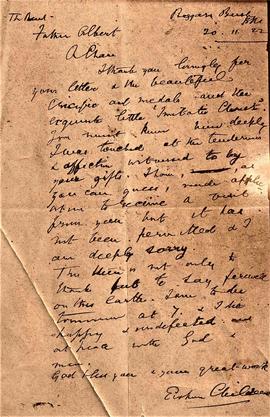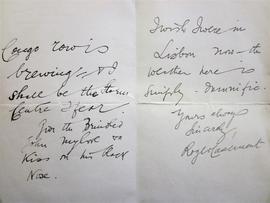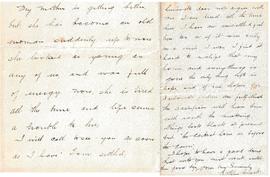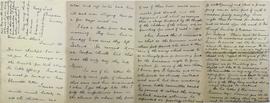The file includes a letter from Fr. Albert to Fr. Edwin Fitzgibbon OFM Cap., Minister Provincial [Dec. 1922], referring to his time in the parish. He declares that the priests there have no interest in Ireland. ‘It doesn’t count here apparently’, and added, ‘unemployment [is] very serious. The “Daily News” urges the setting up “unemployment committees” …’. Later, Canon Palmer, Ilford, Essex, wrote to Fr. Peter Bowe OFM Cap., Provincial Minister, Church Street, Dublin, seeking to have Fr. Albert come over to cover for one of his clerical assistants who is unwell. On 11 Oct. 1923 Fr. Palmer wrote: ‘I would gladly give him all accommodation and he could help us. In strict confidence with yourself I wish to say at the same time that if there is any radical objection to his coming or having facilities. I would not presume to ask you at all’. With letter from Fr. Peter Bowe to Fr. Albert granting permission to ‘absent yourself from the Province for the benefit of your health, and to go to Very Rev. Canon Palmer of Ilford … to help in Parochial Work during the absence of the Senior Curate, until the end of February 1924’. The file also includes a letter from Fr. Sylvester Mulligan OFM Cap. to Fr. Peter Bowe OFM Cap., regarding the sending of Fr. Albert to Ilford, Esssex. Some political references are made by Fr. Albert in a letter to Fr. Stanislaus Kavanagh OFM Cap. (4 Mar. 1924). He wrote: ‘I am able to follow the events pretty well. Tis an awful pity that the being in power of the Labour Party is not availed of to scrap or modify the Treaty – a united body at home could now get anything – not that Labour is pro-Irish. It is not, but … because of the support on which it depends it could not turn down a united Ireland – or a large section demanding it’




